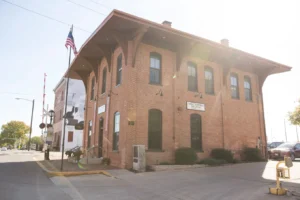Dram Shop Laws in Illinois
A dram shop includes any business that serves alcoholic beverages to the public. This could be a bar, a tavern, or a restaurant. Illinois dram shop laws provide legal redress to injured persons when they are injured by a person who was served too much alcohol by the business. Simply stated, dram shop liability rests with the owner of the business that sold the liquor that caused the intoxication as well as upon the owner of the building.
Suppose a tavern sells an alcoholic beverage to John—who could potentially be a minor, based on his appearance—without checking his ID. John drinks enough to become intoxicated then gets into his vehicle and drives away. On his way home, John causes a car accident, severely injuring those in the other vehicle. Under Illinois dram shop laws, the tavern may be liable for John’s behavior. This would also make them liable for the injured driver’s injuries and property damage.
What is the Purpose of the Dram Shop Law?
The Illinois legislature implemented a policy that any dramshop employee who deliberately sells alcohol to another person, when that employee should know that the person will be deprived of judgment and caused to be incapable of exercising proper care for their safety and the safety of others, will be held liable for any consequences that follow the sale of alcohol. It places legal responsibility for the injuries on the companies that profited from the sale of the alcohol. The legislature hopes that by making companies liable to the public, the companies will be encouraged to stop overserving patrons and therefore present injury to innocent third persons.
What is the Illinois Dram Shop Act?
The Dram Shop Act is a statute that largely replaced old common law rules of liability for businesses serving alcohol to patrons. Under the common law, those businesses were not usually liable for the actions of its intoxicated patrons. 235 ILCS 5/6-21, et. seq. Under Dram Shops laws, businesses are now often liable when they overserve a patron, and that patron injured a third person. The law gives a “right of action” against any person who is injured by an intoxicated person, against the establishment that overserved the intoxicated person.
Serving alcohol to those under the age of 21 is illegal throughout the United States. Most—but not all—states also assign liability under dram shop laws for customers who are overserved. Illinois Draw Shop law provides, in part, “Every person who is injured within this State, in person or property, by any intoxicated person has a right of action in his or her own name, severally or jointly, against any person, licensed under the laws of this State or of any other state to sell alcoholic liquor, who, by selling or giving alcoholic liquor, within or without the territorial limits of this State, causes the intoxication of such person. Any person at least 21 years of age who pays for a hotel or motel room or facility knowing that the room or facility is to be used by any person under 21 years of age for the unlawful consumption of alcoholic liquors and such consumption causes the intoxication of the person under 21 years of age, shall be liable to any person who is injured in person or property by the intoxicated person under 21 years of age.”
Who is Liable When a Patron is Overserved and Injures Another?
Generally, the “operator” of the dram shop can be held liable when an intoxicated patron later injures a third person. However, under some circumstances, the owner of the building may also be liable.
What Amount is Paid by the Dram Shop When They Are Liable?
The amounts are limited by the Bureau of Labor Statistics of the US Department of Labor. The amounts can be increased or decreased annually. You should contact an attorney to obtain updated amounts if you are injured. 235 ILCS 5/6–21. In 2022, the U.S. Bureau of Labor Statistics claimed that the CPI-U increased by 7.04% during the preceding calendar year, and recovery was limited to $95,073.37. Current limits are usually posted by the Illinois Liquor Control Commission.
How is the Business Proven to Be At-Fault in a Dram Shop Case?
Under the Dram Shop Act, you have to prove that the Dram Shop either sold or gave alcohol to the person who caused an injury to a third person. The business does not have a duty to prevent patrons from driving when leaving the establishment. It can include situations in which the business knows that the person purchasing the alcohol is also providing it to another patron, causing intoxication.
You might wonder how vendor fault is clearly shown—and it can be a relatively difficult task. How can bartenders be expected to know whether a patron has a low tolerance for alcohol? How would they know whether a patron drove a vehicle to the establishment? Could they reasonably know if a patron is taking medication that could affect alcohol tolerance? When the Illinois Dramshop Act is invoked, the following must be proven at trial:
- There is proof alcohol was sold to the individual
- The individual then caused injuries to a third person
- There is a proximate cause between the sale of the alcohol and the intoxication of the individual
- Intoxication was at least one cause of injuries to the third person
Does the Dramshop Have Any Defenses?
Complicity is an affirmative defense for dram shop actions. If the injured person is complicit in the intoxication of the patron, and contributes to that intoxication, the dram shop will have an affirmative defense against liability. The legal issue rests on whether or not the injured person contributed to the other patron’s intoxication. So for example, if two friends go to a neighborhood bar, and the first friend purchase several shots of alcohol for the second friend before getting in the car with that friend, the dram shop would probably claim the affirmative defense of “complicity.” It requires active participation and encouragement of the injured person, in the other person’s consumption of alcohol.
What Liability Exists Under Illinois Dram Shop Laws?
The Illinois Dram Shop Act assigns “vicarious liability” to at-fault parties that serve or sell alcohol to a patron who later causes an accident. The Illinois Judiciary has issued Civil Jury Instructions outlining how establishments can be held liable for the actions of intoxicated individuals. Liability applies to the owners or lessors of the establishment where the alcohol is sold, as well as to the businesses selling the alcoholic beverages.
- Duty of Care—Establishments that sell alcohol have a duty of care to patrons and others who could be injured as a result of the intoxication of said patrons.
- Limitations—The plaintiff is not required to prove the patron was visibly drunk at the time he or she was served alcohol, only that alcohol was served.
What Happens if the Victim Dies?
Dram Shop litigation is one of many types of lawsuits that “survives” the death of the victim. This means that if an establishment serves too much alcohol to a person, who then drives and causes the death of another, the deceased person’s lawsuit can be filed through the probate estate. Usually, that means the executor of the will, or “independent administrator” appointed by the Court, sues on behalf of the deceased person.
Can Social Hosts Be Liable Under Dram Shop Laws?
No. Dram Shops are limited to establishments or persons selling alcohol to patrons. However, other legal liabilities or causes of action may exist.
Do I Have a Case Regarding Illinois Dram Shop Laws?
Every case is different and relies on the specific facts to your case. If you believe you have a Dram Shop action, you should speak to an attorney immediately. That attorney can send out preservation of evidence letters, conduct investigations, issue FOIAs for police investigations, and gather other facts to help you determine whether you have a claim. If a lawsuit is filed, your lawyer can take depositions and issue subpoenas to obtain evidence that you may not have or know about.
Essentially, under Illinois Dram Shop laws, a commercial business serving alcohol oftentimes makes the establishment liable if the patron causes an accident. That being said, the basic requirements of an injury claim must be met. These basic requirements must be combined with the special circumstances of a dram shop law case in order to bring a claim against a vendor. To expound on the four unique elements of the Illinois dram shop laws:
- A relationship between the patron and the vendor must be established. This means it must be shown that a particular vendor sold the patron alcohol. This can be shown by using witness statements, video surveillance, or credit card receipts.
- The patron of the establishment who was served alcohol must be shown to be the at-fault party in the accident. This can be accomplished by using video footage of the establishment, cell phone data, police reports, witness statements, and any other available evidence.
- It must be shown that the alcohol vendor contributed to the intoxication of the patron.
- Finally, it must be shown that the patron’s intoxication was the proximate cause of the person’s injuries.
Noll Law Office Car Accident Lawyers – Springfield
930 E Monroe St, Springfield, IL 62701
Office Hours:
Monday – Open 24 hours
Tuesday – Open 24 hours
Wednesday- Open 24 hours
Thursday – Open 24 hours
Friday – Open 24 hours
Saturday – Open 24 hours
Sunday – Open 24 hours
How Do I Choose the Best Attorney When I Was Injured by a Drunk Driver?
If you were injured by a drunk driver, pick lawyers who will know how to investigate to determine whether the person had been drinking at an establishment that falls under the Illinois dram shop laws prior to the accident. The attorneys at the Noll Law Office are experienced personal injury lawyers who also have significant experience in the prosecution and defense of DUI cases. The combination of experience overlaps to provide you with lawyers who are extremely well versed in intoxication litigation.
When the Noll Law Office represents victims who have been hurt by an intoxicated motorist, they bring a vast wealth of experience to the case in order to maximize the settlement amount for their clients. They also have access to a vast array of experts who can testify as to the percentage of your injuries which were caused by the drunk driver’s intoxication. If you need an attorney, please contact the Noll Law Office and they will meet you for a free initial consultation. You will work directly with a local, experienced attorney throughout your case. Contact the Noll Law Office today!


